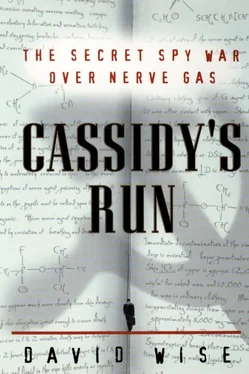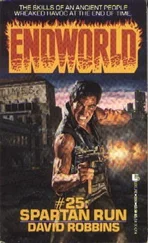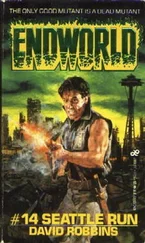There was another reason that the FBI declined to let Flores go to Mexico. “If we operate outside the U.S., we are going to have to let the CIA know about it. The bureau did not want to involve the CIA.”
In the summer of 1974, the Lopezes left their books and furniture with Flores and went off to Europe. “They visited the Soviet Union,” Flores said. “They told friends they had been all over Europe. It was a cover story. We think he spent the summer in Moscow.”
That autumn, Flores prepared to end his undercover role and transfer to the bureau’s Los Angeles division. The PALMETTO assignment, and the pretense, had not been easy on his wife. He had already followed Lopez to two cities. “I thought I had done enough. I wanted my son to get into first grade in California and not be uprooted again.”
Flores told Lopez he and his family were moving away. “Gilberto was already thinking about leaving Austin. When we were saying good-bye, he said he had applied to the University of Minnesota. He said he might become a professor.”
When Cassidy, stillon active duty, had met with Mikhail Danilin in Washington in July 1971, the microdot inside the hollow rock that he retrieved at his drop site contained an extraordinary set of instructions. Cassidy was ordered, if he detected military preparations for war, to call a telephone number in New York City.
The instructions also provided the “parol,” or recognition dialogue, that Cassidy was to speak to the man who answered the telephone. The microdot gave the man’s name as Edmund Freundlich, and his address as Apartment 1A, 2770 Kingsbridge Terrace, Bronx, NY, 10463.
The FBI quickly verified that this was in fact the name and address of the man in apartment 1A. Clearly, Edmund Freundlich was a Soviet “sleeper agent,” a faceless spy among the millions of people in New York City, whose job was to serve as a sort of one-man early-warning system in the event of a planned nuclear attack on the Soviet Union. A sleeper agent is a long-term spy planted inside an enemy country with orders to engage in a minimal amount of espionage activities, or none at all, so that he can be activated primarily in case of war or an emergency.
While no target was specified, the primary concern of the Russians was obviously to obtain advance news of an attack against the Soviet Union. A warning call that the United States was mobilizing against some other country would certainly have been of interest to the Soviets as well. But whatever other duties may have been assigned to him by Moscow, Edmund Freundlich’s most important job was to wait for the phone call that might mark the start of World War III.
If Freundlich ever received a phone call alerting the Soviets to a nuclear attack, the conversation would be cryptic and the meaning indecipherable to anyone who overheard it. On the microdot Cassidy got from Danilin, he was told that if he had to make the call, he was to go to a pay phone, dial the number, and inquire about an order for books.
Cassidy was instructed to say, “Mr. Freundlich? That’s [ sic ] Rex, how about my order for [a number indicating a future date] books?” [1] Whoever wrote the parol probably did not know English very well and used “That’s Rex” instead of “This is Rex….”
The number given would signify the number of days until the attack and would depend on the circumstances. In the microdot, Cassidy was given an example of three numbers: 11, 22, and 55. The numbers were to be understood as single digits; thus 11 would mean one day, 22 two days, and so on. For example, if Cassidy called on October 10 and believed an attack was to be launched on October 12, he was to say, “That’s Rex, how about my order for twenty-two books?” Freundlich was to respond, “For twenty-two it’s okay.” After that, Cassidy was instructed by the Soviets to “just hang up the receiver.” He was to follow up with a letter, which would appear to be a business letter confirming his book order, but on the back of the letter, using secret writing, he was directed to provide details of the U.S. plan of attack. [2] The letter would almost certainly arrive after the attack had begun, making it only marginally useful. In a bizarre touch, if the date of the likely attack was more than a week in the future, Cassidy was instructed only to mail a letter to Freundlich rather than use the telephone at all. To the FBI, the Soviet plan did not make a lot of sense. Apparently, the GRU had much more faith in the postal service than do most Americans.
There was only one problem with the instructions Cassidy received on the microdot. The phone number he had been given by the Russians was wrong: The last two digits were transposed. Cassidy had been told to call a number ending with 2835. But when the FBI looked up Edmund Freundlich in the Bronx telephone book, it found that his number ended with 2853.
One would suppose that with the warning of a possible nuclear Armageddon depending on Joe Cassidy, the GRU would have made sure that the telephone number he had been given was correct. But the devil is in the details, and things often go wrong in the spy business, as in any other human endeavor. This, however, was a wrong number to end all wrong numbers.
To the bureau, the fact that the GRU had provided the true name and address of its sleeper in New York was seen as further evidence that Moscow completely trusted Joe Cassidy. For the Soviets to share this information with Cassidy was an extraordinary expression of confidence in him.
Operation SHOCKER had now flushed three illegals: Gilberto Lopez y Rivas, his wife, Alicia Lopez, and Edmund Freundlich.
The FBI opened a new case file on Edmund Freundlich. At the bureau’s headquarters in Washington, Gene Peterson gave him his own code name: IXORA. Ixora is a tropical plant that Peterson had cultivated in his garden in Tampa, where he worked for the FBI before coming to Washington. “It’s also called the iron bush, because the trunk would get a black mold on it,” he said. “It has beautiful red flowers. It only blossoms on second-year wood. When you trim it, you have to know it won’t bloom until two years later. It’s like forsythia that way.” [3] Ixora, often grown in greenhouses, is named after the Hindu deity Isvara.
A reclusive, fifty-two-year-old bachelor, Freundlich seemed an unlikely spy. He appeared to have few friends and to live a drab, colorless existence. But perhaps that is precisely why he was chosen for his role—a gray man who blended almost invisibly into the background.
Edmund Freundlich, according to records of the U.S. Immigration and Naturalization Service, was born in Vienna on April 14, 1919. The family name means “friendly” in German, an dispronounced “Froyndlish.”
In March 1938 Hitler’s army marched into Austria and the country was annexed as part of the Third Reich. On August 14, five months after the Anschluss, Freundlich, then nineteen, entered Switzerland at Diepoldsau, just across the Rhine from Austria, as a refugee from the Nazis. Freundlich spent the war in refugee camps in Switzerland. According to records of the Swiss police in the canton of Saint Gallen, he spent time in a camp at Schönengrund, near Appenzell, and for four years, from February 1940, he was in a camp at Diepoldsau. The police files show that from November 13, 1944, until April 20, 1945, he was at the immigrant work camp at Zurich-Seebach. He left Switzerland and returned to Austria on August 29, 1945.
But the bare-bones records of the Swiss police do not tell the whole story. Two of Edmund Freundlich’s brothers also made their way to Switzerland in 1939 and later to the Dominican Republic. His brother Oswald emigrated to New York in 1951 and went into business chartering cargo ships.
Читать дальше












